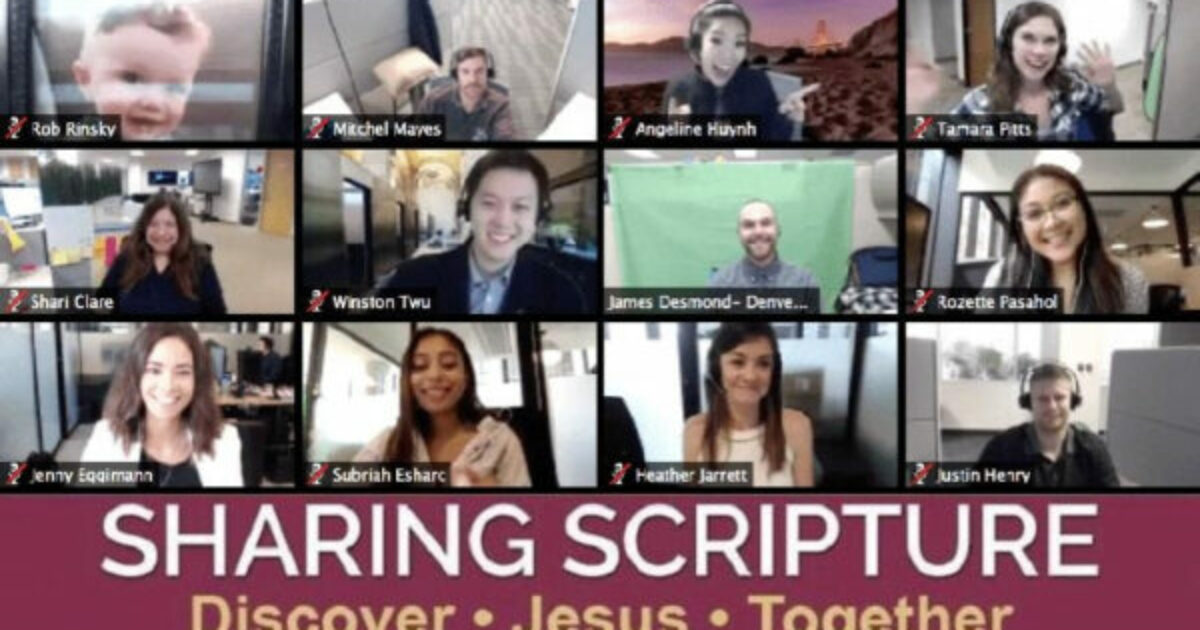Sharing Scripture — August 8-14, 2021
This is a tool for you to use if you lead a Sabbath School (SS) class or small group. It is keyed to the Bible texts used in the current week’s Adult SS lesson and includes a brief story from current news you can use to introduce the discussion and then a series of discussion questions in a relational pattern designed to build fellowship and spiritual reflection.
Rest, Relationships, and Healing
For use: August 8-14, 2021
Texts: Genesis 42:7-20; Matthew 25:41-46; Genesis 42:21-24; Genesis 45:1-15; Luke 23:34; Genesis 50:15-21
“My father was an alcoholic,” writes an anonymous essayist whose parents went through a bitter divorce when she was a teenager. “My mother got custody. My father always paid child support, but he was completely absent from my life. He didn’t even acknowledge my high school graduation, and refused to help me go to college so I did it on my own.”
Once she became an adult, she tried to include him in the big events of her life, but his responses were often very hurtful. He could occasionally seem nice and encouraging when she’d call. “But other times,” she recalls, “(when he was drinking), he would make me feel like a worm. I really hated to phone him, because I had no idea how he’d react.”
One day, he called to let her know he’d checked himself into rehab. There, he began to learn how to rebuild his relationship with her. He apologized for his hurtful behavior. “My father’s apology fully healed my heart,” she reflects. “I should note that he did not ask for forgiveness. He mentioned that asking for forgiveness puts the other person in a tough spot.” She forgave him anyway, and by the time he died a few years later, “I felt like I finally had a father after all my growing up years without one.”
Damaged relationships are stressful. The anxiety brought on by the uncertainty of the relationship’s dynamics make it impossible to fully relax. When we heal dysfunctional relationships, the parties involved can finally experience rest.
In the Sermon on the Mount, Jesus does a reset regarding interpersonal relationships. Instead of taking an eye for an eye and a tooth for a tooth in response to personal offenses, we are now required to turn the other cheek. Loving our friends is no longer enough—now we must love our enemies. Now we are required to forgive people when they sin against us, even if they don’t ask for forgiveness.
To put it simply, in His sermon Jesus stresses that we should move beyond just getting our due; we should take the initiative in working to heal damaged relationships. In Matthew 6:25-34, Jesus assures us that we can let go of our worries when we seek a healthy relationship with God. In Jesus, we receive true rest and a restored relationship with our Creator.
[symple_divider style=”solid” margin_top=”20″ margin_bottom=”10″]
Connecting: What would you say is the greatest destroyer of relationships? Is it outside factors such as substance abuse and addictions? Is it inner turmoil like selfishness or low self-respect? What is the best way to prepare our (grand)children to avoid these pitfalls and begin building healthy relationships from a young age?
Sharing: Why was Joseph so ready to forgive his brothers after they had been so nasty to him?
- As prime minister of Egypt, it was easy for Joseph—once he attained power over them, they couldn’t hurt him again
- The passing of time had lessened the sting of their betrayal
- Joseph grew and matured spiritually as he endured a period of slavery and prison in Egypt
- He knew that the only way for his tribe to survive and fulfill God’s plan for them was to let go of the past, reset his relationship with his brothers and move forward into the future
- He only did it because of his love for his father, Jacob, and his brother Benjamin; he still wasn’t too thrilled with the others
- Other:
Applying: Polarizing political agendas have wounded many families. What are some strategies to help family members look beyond their political differences and restore the health of their relationships? If you are able and feel comfortable doing so, share some of those strategies with someone you know who is suffering from this schism.
Valuing: How well are you practicing Jesus’ instruction to forgive people when they sin against you (Matthew 6:14)? Is there someone that you are refusing to forgive? Make that a matter of prayer this week as you seek God’s help to experience true rest through relational healing.
~ Chuck Burkeen
Photo credit: https://bensonbaptist.org/zoom/
Before you go…
Your financial support allows us to keep growing the best thing about Adventist Today: our international family of readers, writers and other contributors.
Since the start of the pandemic we have expanded from being an independent news and commentary publisher to actively engaging and growing our AT community via features such as our weekly Sabbath Seminar gathering and AT1, our weekly on-demand vespers program.
In a time of uncertainty when much of the world still suffers from indoor isolation, being part of the AT community means more than ever.
Your support has allowed the AT family to grow in diversity as more and more writers, presenters and musicians have joined our family from around the world. No lockdown can stop the growth we’ve experienced together.
We couldn’t have grown like this without your support.
Thank you for giving generously to build the future of AT. Donate to Adventist Today by clicking here: atoday.org/donate




